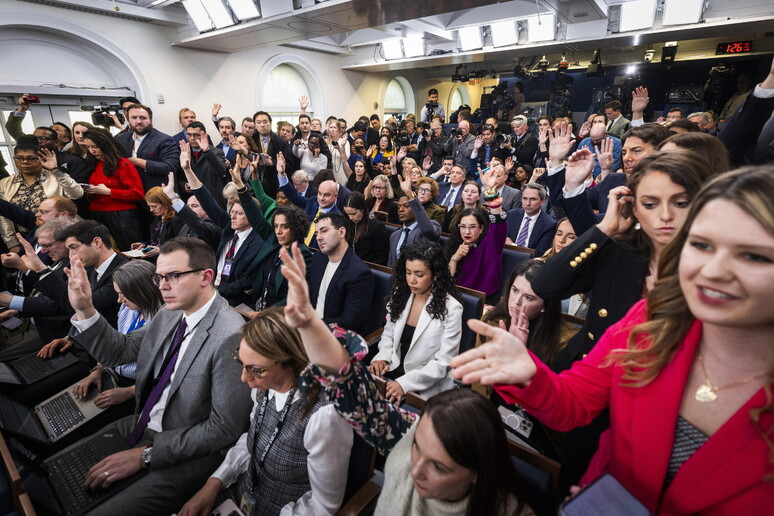Despite a federal injunction that overturned the ban on Associated Press AP reporters attending official White House events, journalists from the news organization continue to be excluded, raising serious concerns about freedom of the press and the limits of governmental authority.
The latest incident occurred during an Oval Office meeting between Donald Trump and El Salvador’s President Nayib Bukele, to which AP was once again denied access.
The exclusion originated from the agency’s decision to continue using the term “Gulf of Mexico” instead of the recently adopted “Gulf of America” in its publications an editorial stance that the Republican administration had deemed inconsistent with its official guidelines.
However, on April 8, federal judge Trevor McFadden ruled that the ban was unconstitutional, describing the administration’s actions as discriminatory and ordering that AP reporters be reinstated in the presidential press pool.
Nevertheless, the agency’s spokesperson, Lauren Easton, said their reporters had been blocked from entering the Oval Office and expressed disappointment over the White House’s failure to comply with the court order. She also stated that the organization expected their credentials to be reinstated as mandated by the injunction.
While AP photographers were allowed to cover an event on the South Lawn with the Ohio State University football team, written press reporters from the same agency were denied entry. This inconsistency only reinforced the perception of targeted exclusion difficult to justify on logistical grounds and seemingly driven by political motives.
In the meantime, the White House has appealed McFadden’s ruling, arguing that the requirement to reinstate AP interferes with the president’s agenda. Administration lawyers have acknowledged that the injunction is in effect but requested the Court of Appeals to suspend the order, claiming it represents an overly intrusive measure.
On the other hand, AP’s legal team stressed the seriousness of the matter, accusing the GOP leader of continuing to retaliate against their client for its editorial stance. They argued that suspending the injunction would inflict irreparable harm on the news organization.
The case has sparked intense debate over the role of the press and the reach of political power. While the White House may not bar specific journalists solely for editorial reasons, the judge clarified that, although there is no constitutional right for AP to be present at every specific event, any restrictions must uphold equal treatment. The court concluded that while the agency cannot demand automatic entry to the Oval Office, it also cannot be excluded based on its editorial orientation.












